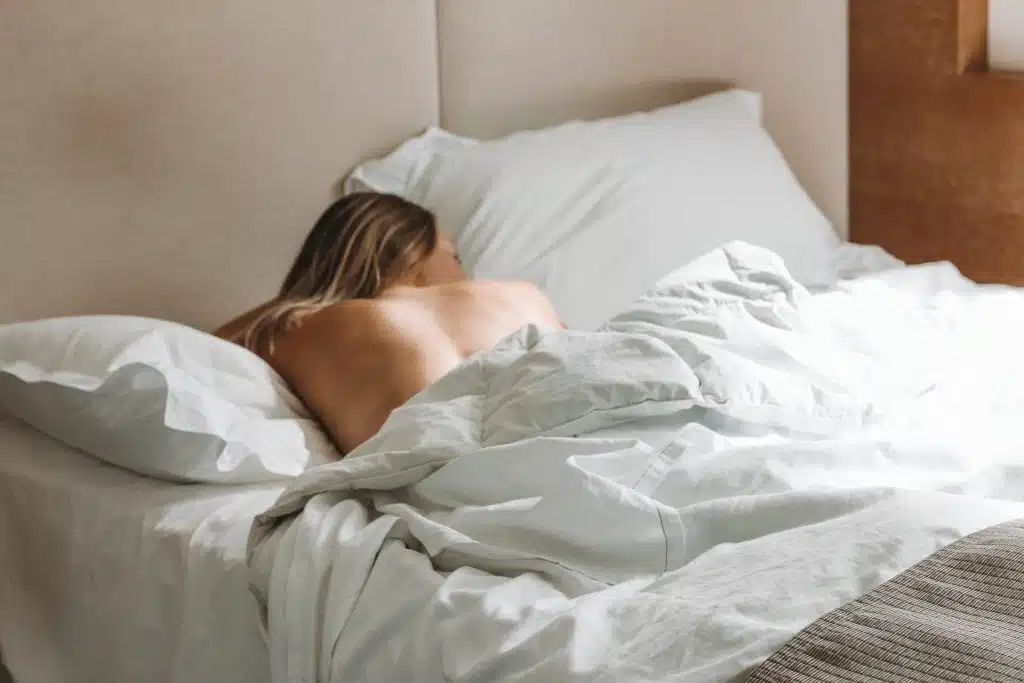Sleep: it’s free. And we all want more of it, so why is it so hard to get? Specifically that solid, uninterrupted, eight-hours-a-night type of sleep.
Caffeine, alcohol, stress and irregular sleep schedules are just a few of the common culprits responsible for making restorative sleep so elusive and unattainable. These factors influence and interfere with our sleep hygiene — a term used to describe healthy sleep habits that improve our ability to fall, and remain, asleep.
In order to function properly, we need regular rest to recharge both our body and brain. From forming and storing memories to repairing cells, regulating hormones and helping us recover from illness, sleep plays an important role in a range of mental and physical processes — which means that good sleep hygiene is crucial to improving both our mental and physical health. We know this is easier said than done, which is why we’ve rounded up a few endota-approved tips to remedy a restless night.
Consistency is key:
A consistent sleep schedule helps to maintain our circadian rhythm (the internal body clock that provides signals for our bodies to generate hormones that tell us when to wake, sleep, eat and be active), so disrupting our sleeping patterns with late nights and sleep-ins can make it difficult to fall asleep in the future. While it’s inevitable that everyday life stands in the way of sticking to the same bedtime every night, making a few small changes to light and temperature can help train the body to sleep sooner (and better).
Manipulate lighting:
Light cues also affect our circadian rhythm, so aligning and reducing our light exposure with the setting of the sun helps prepare us for bed. In the evening, avoid sources of bright lights by using dim lamps or the gentle, dappled light of our Essential Oil Diffuser to illuminate your home.
Stay cool:
During sleep, our core temperature is at its lowest, which means a good way to trick your body into thinking it’s ready for bed is to cool down — but not in the way you’d expect. A hot bath or shower before bed cools us down internally by stimulating the body’s thermoregulatory system and shifting heat from our core to our extremities, signalling the pineal gland to produce melatonin which promotes sleepiness. To dial up the relaxation, add a few drops of a lavender-based essential oil such as endota’s Signature scent to your bath and notice the array of calming benefits aromatherapy evokes.
Take a breath:
If you’re ever stuck tossing and turning in the night, it’s likely a myriad of thoughts, worries and to-do lists that are keeping you up. To remedy this, try the practice of box breathing. Breathwork helps by oxygenating our body (which lowers blood pressure and slows our heartbeat) while bringing mindfulness to our breath and quietening mental clutter.
Nightstand essentials:
When all else fails, there are a few tangible tools you can have on hand to help soothe the senses. The endota Sleep Sound roll-on has been carefully formulated to promote sleep with the delicately balanced scents of chamomile and lavender. Aside from the obvious benefit of blocking out light, a silk sleep mask is an intentional way of signalling to yourself it’s time for bed by creating a barrier between you and your phone, tablet or book.
Be intentional in creating a sleep sanctuary
As counterintuitive as it sounds, we must plan time to relax each night. Our bodies are complex and can’t simply turn on and off like a light switch — which is why we should allow adequate wind-down time to detach from the day with a bedtime routine.
The plan itself can have as many or as few steps as you’d like, but the key is to ensure it’s tailored to your lifestyle and practised as best you can each evening. While you’ll want to experiment to see what works for you, an example of a sleep plan might look like this:
7:00pm – Dim the lights in the room(s) you’re in
7:30pm – Apply a few drops of lavender oil to your diffuser
8:00pm – Take a hot bath
9:00pm – Minimise your screen time (if you’re unable to do so, try investing in some blue-light blocking glasses)
9:30pm – Read a book or listen to a guided meditation class
10:00pm – Apply an essential oil roll-on to your wrists or temples and ready yourself for bedtime by putting on your sleep mask.


